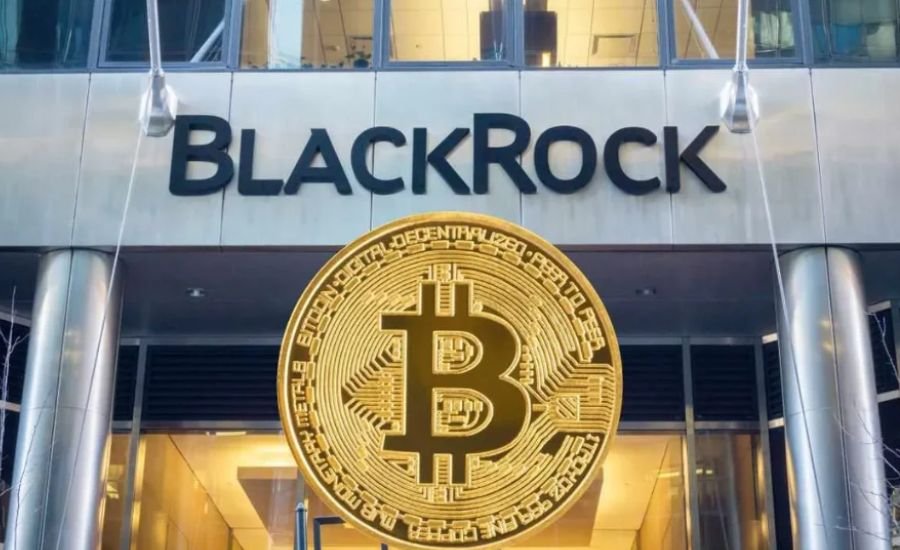Introduction to BlackRock
1-806-301-1929 Blackrock, Inc. is a global investment management corporation founded in 1988. Headquartered in New York City, it has grown to become one of the largest asset management firms in the world. With a presence in over 100 countries and managing assets worth over $9 trillion, BlackRock plays a significant role in global finance.
History and Growth
BlackRock was initially established as a risk management and fixed-income institutional asset manager. The company’s founders, including Larry Fink, recognized the need for more sophisticated risk assessment tools. The firm expanded its services and client base over the years, acquiring several firms along the way. Notable acquisitions include:
Merrill Lynch Investment Managers (2006): This acquisition diversified BlackRock’s capabilities and expanded its global footprint.
Barclays Global Investors (2009): This purchase made BlackRock the largest asset manager in the world, adding a wide range of index funds and ETFs to its offerings.
Today, BlackRock’s diverse portfolio includes traditional asset management, alternative investments, and innovative financial technology solutions.
Services Offered
BlackRock offers a wide range of investment solutions across various asset classes, including:
Equities: Stocks and equity funds that seek capital appreciation, including active and index strategies.
Fixed Income: Bonds and debt securities designed for income generation, catering to different risk profiles and durations.
Multi-Asset Solutions: Combining various asset classes to meet specific investment goals, utilizing a flexible approach to asset allocation.
Alternative Investments: Investments in private equity, real estate, hedge funds, and commodities, designed for diversification and potential higher returns.
Exchange-Traded Funds (ETFs): Through its iShares brand, BlackRock offers a wide array of ETFs, providing investors with low-cost access to various markets and sectors.
In addition to these services, BlackRock provides risk management and advisory services through its Aladdin platform, which uses advanced technology to help clients manage their investment portfolios effectively.
The Aladdin Platform

1-806-301-1929 Blackrock, Aladdin (Asset, Liability, Debt, and Derivative Investment Network) is a comprehensive investment management system that integrates risk analytics, portfolio management, and operations. Key features of Aladdin include:
Risk Analytics: Offering tools to measure and manage risk across different asset classes.
Portfolio Management: Streamlining the investment process, allowing managers to analyze portfolios and execute trades efficiently.
Data Insights: Providing clients with market data and analytics to inform investment decisions.
Aladdin is one of the key components that sets BlackRock apart from its competitors, serving both BlackRock’s internal operations and external clients.
Global Presence and Client Base
BlackRock serves a diverse client base, including governments, institutions, and individual investors. Its clients range from pension funds and sovereign wealth funds to insurance companies and retail investors. The firm operates in over 30 countries and manages investments across all major asset classes, enabling it to leverage market insights and investment opportunities worldwide.
Commitment to Sustainability
In recent years, BlackRock has made a concerted effort to integrate environmental, social, and governance (ESG) factors into its investment strategies. CEO Larry Fink has emphasized the importance of sustainability, stating that companies must prioritize climate risk and social responsibility. Key initiatives include:
Sustainable Investment Funds: Launching products specifically designed for ESG-conscious investors.
Engagement with Companies: Actively engaging with portfolio companies on sustainability
practices and advocating for improved transparency and accountability.
Climate Risk Assessments: Incorporating climate risk into investment analysis to help clients understand potential impacts on their portfolios.
BlackRock’s commitment to ESG investing reflects a broader industry trend towards responsible investing, aiming to align financial returns with societal impact.
Challenges and Criticisms
Despite its successes, 1-806-301-1929 Blackrock faces several challenges and criticisms:
Systemic Risk: Some critics argue that its size and influence can lead to systemic risks in the financial system, raising concerns about the concentration of power in asset management.
Regulatory Scrutiny: As regulators worldwide increasingly focus on large financial institutions, BlackRock faces scrutiny regarding its practices and market influence.
Sustainability Skepticism: While BlackRock has made strides in sustainability, it faces criticism from both advocates who seek stronger action and skeptics who question the effectiveness of its ESG initiatives. Balancing these perspectives while maintaining its growth trajectory is a key challenge for the firm.
BlackRock in the Context of Global Markets
BlackRock’s influence extends beyond asset management. It plays a critical role in global markets through its investments and the impact of its decisions. For instance:
Market Liquidity: As one of the largest shareholders in many public companies, BlackRock’s trading decisions can affect stock prices and market liquidity.
Policy Influence: Given its vast resources, BlackRock has the ability to influence financial policies and corporate governance practices, making its voice significant in economic discussions.
Case Study: BlackRock’s Impact on Sustainable Investing

Background
In recent years, BlackRock has made significant strides in promoting sustainable investing, driven by increasing awareness of climate change and corporate governance issues. This case study examines how BlackRock has integrated Environmental, Social, and Governance (ESG) criteria into its investment strategies and the resultant impacts on the market and its clients.
Strategy Implementation
Product Development: BlackRock launched a suite of sustainable investment funds, including ESG-focused ETFs and mutual funds. These products are designed to meet the growing demand for responsible investment options among retail and institutional investors.
Engagement and Advocacy: BlackRock actively engages with portfolio companies to encourage them to adopt sustainable practices. Through its Investment Stewardship team, BlackRock votes on shareholder resolutions and communicates directly with company leadership about ESG matters.
Climate Risk Assessment: BlackRock has integrated climate risk into its investment analysis. It provides tools and frameworks for clients to assess the potential impacts of climate change on their portfolios, helping them make informed decisions.
Results
Increased Capital Flow: The launch of sustainable funds has attracted significant capital inflows, reflecting the growing interest in ESG investments.
Influence on Corporate Behavior: BlackRock’s engagement efforts have led to improved corporate practices regarding sustainability, as companies respond to the expectations of major shareholders.
Market Leadership: By positioning itself as a leader in sustainable investing, BlackRock has strengthened its brand and attracted new clients seeking responsible investment strategies.
Conclusion
BlackRock’s commitment to sustainable investing has not only enhanced its reputation but also contributed to a broader shift in the investment landscape toward ESG considerations. This case study underscores the firm’s role in shaping responsible finance and its potential to influence corporate behavior positively.

FAQ: BlackRock
Q1: What is BlackRock?
A1: BlackRock is a global investment management corporation that manages trillions in assets across various asset classes, including equities, fixed income, and alternatives. It is known for its expertise in risk management and its innovative Aladdin platform.
Q2: What services does BlackRock offer?
A2: BlackRock offers a range of services, including investment management, risk management, and advisory services. It provides solutions for institutional and retail investors, focusing on equities, fixed income, multi-asset solutions, and alternative investments.
Q3: What is the Aladdin platform?
A3: Aladdin is BlackRock’s proprietary investment management system that integrates risk analytics, portfolio management, and operations. It helps clients manage their investments and assess risks effectively.
Q4: How does BlackRock approach sustainability?
A4: BlackRock incorporates ESG factors into its investment strategies, launching sustainable funds, engaging with companies on ESG issues, and providing tools for climate risk assessment. The firm emphasizes the importance of sustainability for long-term financial performance.
Q5: What are some criticisms of BlackRock?
A5: Critics argue that BlackRock’s size may pose systemic risks to the financial system and that its influence on corporate governance can lead to conflicts of interest. Additionally, some advocate for stronger actions in its sustainability initiatives.
Conclusion
BlackRock stands as a titan in the investment management industry, continually adapting to market dynamics and client needs. Its innovative technology, diverse investment solutions, and commitment to sustainability position it well for the future. As the firm navigates challenges and opportunities, its influence on global finance will undoubtedly remain significant.
Whether you are an investor, financial professional, or simply interested in the financial landscape, understanding BlackRock’s role is essential in today’s complex economic environment. As it continues to evolve, BlackRock will play a pivotal role in shaping the future of investing and responsible finance.
